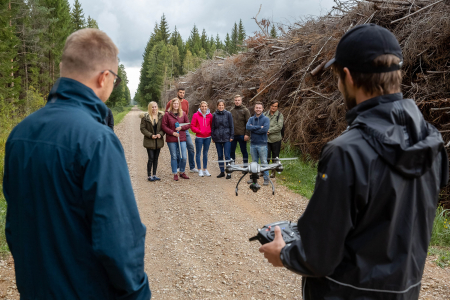Centre for Lifelong Education

In the era of rapidly developing science, technological achievements and high technologies, knowledge and skills acquired through formal education become out-of-date no sooner than learnt. Lifelong education is an educational process throughout the life of a human being, which is based on changing needs to obtain knowledge, skills and experience, to improve or change qualification according to the labour market demands, personal interests and needs. Lifelong education combines informal learning with formal education, develops innate abilities alongside with new competences. Lifelong education with a specially organised system of both formal and informal further education promotes the development of a full-fledged personality and helps a person to adapt to the new era and social changes more successfully, and to retain work through continuous improving of qualification and even re-training. Lifelong education in the framework of a purposeful further education system gives an opportunity to implement the principle "Life for living, life for learning".
Directions of the lifelong education centre activities are:
- Further education
various courses for professional development, increasing the competence level and acquiring new skills in the following branches: pedagogy and psychology, computer science, social sciences and administration, agriculture, food technology, project management, languages, commercial sciences, veterinary medicine, environment and art, engineering science. At the end of the courses, participants receive a Latvia University of Life Sciences and Technologies Further Education Certificate. - Study courses for learners
the possibility to attend courses of basic studies and master's degree studies, and after fulfilling academic obligations receive a certificate issued by the Latvia University of Life Sciences and Technologies. The status of learners gives people an opportunity to obtain knowledge and skills corresponding to the requirements of the labour market irrespective of their age and professional qualification. - Preparatory courses
students in the last grades of secondary school and secondary school graduates have an opportunity to revise and improve knowledge in physics, chemistry and mathematics in order to prepare for their studies and exams.